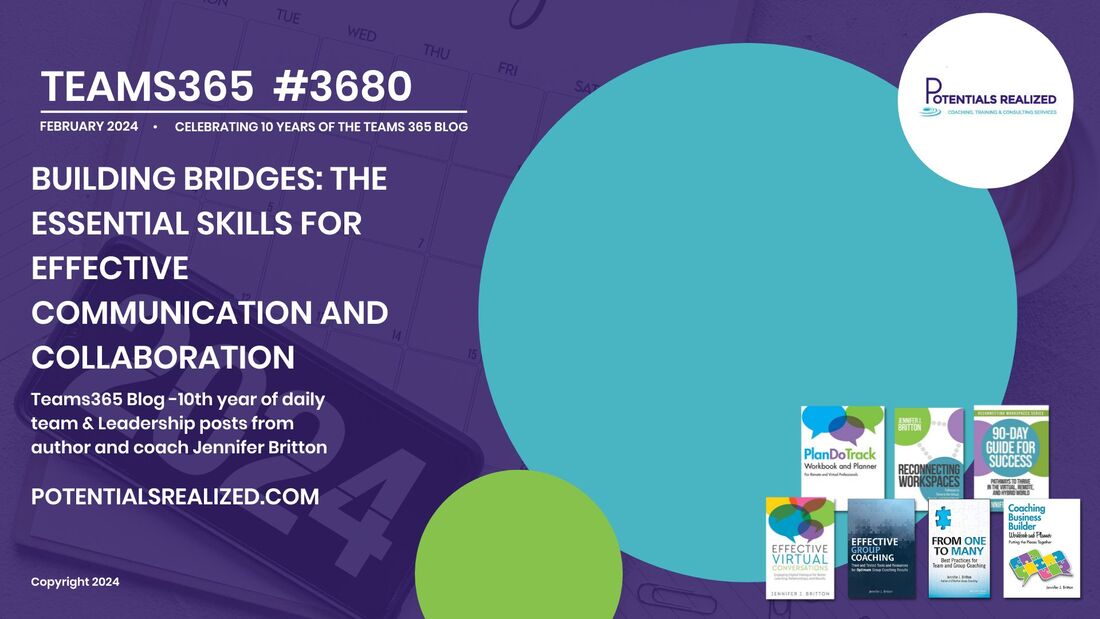Active Listening: The foundation of effective communication lies in active listening. To collaborate successfully, individuals need to genuinely understand and internalize their teammates' perspectives. By practicing active listening, where one focuses on comprehending rather than just hearing, teams can eliminate misunderstandings and build a foundation of trust.
Clear Articulation: Clarity in communication is paramount. Individuals should be able to express their thoughts, ideas, and expectations clearly and concisely. Clear articulation ensures that everyone is on the same page, minimizing the risk of misinterpretation and creating a solid foundation for collaborative efforts.
Empathy: A key component of successful collaboration is the ability to empathize with teammates. Understanding and acknowledging others' emotions and perspectives fosters a positive and supportive environment. By practicing empathy, team members can navigate conflicts more effectively, leading to stronger collaboration.
Adaptability: The ability to adapt communication styles is crucial for effective collaboration, especially in diverse teams. Recognizing that different individuals have unique communication preferences allows team members to tailor their approach, ensuring that information is received and understood by everyone involved.
Constructive Feedback: Collaboration thrives on continuous improvement, and constructive feedback is the catalyst for growth. Individuals should develop the skill of providing feedback in a way that is helpful, specific, and focused on improvement rather than criticism. Constructive feedback encourages a culture of learning and refinement within the team.
Conflict Resolution: Conflicts are inevitable in collaborative settings, but how they are handled can make or break a team. Developing conflict resolution skills involves addressing issues promptly, staying objective, and finding mutually beneficial solutions. Effective communication is the cornerstone of successful conflict resolution.
Open Communication Channels: To foster collaboration, individuals should actively create an environment that encourages open communication. This involves sharing information transparently, encouraging questions, and promoting a culture where team members feel comfortable expressing their thoughts and concerns.
In conclusion, building bridges between communication and collaboration requires honing specific skills. Active listening, clear articulation, empathy, adaptability, constructive feedback, conflict resolution, and open communication channels are essential components. By focusing on these skills, individuals can contribute to a culture of effective communication, paving the way for seamless collaboration and ultimately driving success in today's interconnected professional world.
Next week we’ll pick up on Monday through Wednesday with more on skills for beter collaboration. Tomrorow we focus on one tool that we’ve just launched – the Conversation Sparker Charms. You will find them for order at https://www.conversationsparker.com/charms.html.
CEO, Head Coach and Author
Potentials Realized | Group Coaching Essentials
Leadership | Teamwork | Coaching
Contact: 1-416-996-8326
Email: [email protected]
Instagram:@ReconnectingWorkspaces @CoachingBusinessBuilder
Pick up a copy of Reconnecting Workspaces: Pathways to Thrive in the Virtual, Remote and Hybrid World at Amazon – https://bit.ly/reconnectingworkspaces.
Check out my latest TEDx talk – Coaching Teams Through Chaos at https://www.ted.com/talks/jennifer_britton_coaching_teams_through_chaos
Set up a call with myself or my team to learn more about how we can support you through our award-winning ICF CCE approved Coach Training programs – https://calendly.com/potentials-realized/group-coaching-essentials

 RSS Feed
RSS Feed





